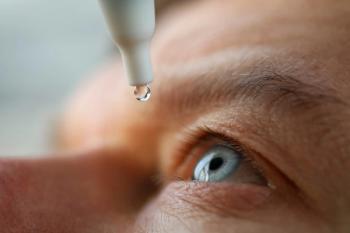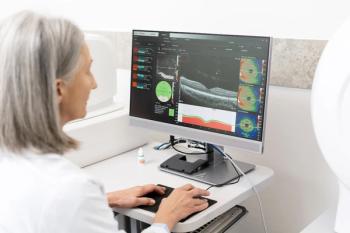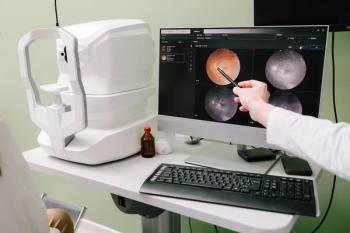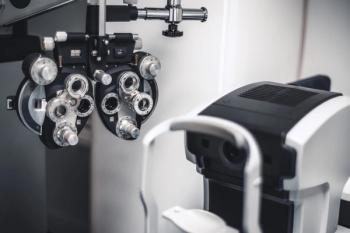
Ohio Board of Optometry opposes online refraction
The Ohio State Board of Optometry recently released an official policy statement against online refraction, stating that the practice can significantly compromise standards of care.
Columbus, OH-The Ohio State Board of Optometry recently released an
“The Board’s first and foremost charge is the protection of the public’s health and wellness,” says Ohio State Board of Optometry Executive Director Jeff Greene, speaking exclusively with Optometry Times. “The members of the Ohio State Board of Optometry felt it was important enough to enact a policy statement regarding online refractions to remind our licensees how this activity would risk the public’s eye health, and to explain that an Ohio optometrist would be in violation of our current laws and rules if he/she were to participate."
The concerns with online refraction
Among the Board’s concerns with companies that offer online refraction is the use of online questionnaires which do not adequately establish a patient’s age or medical/ocular history. While one company specifically states that no one under the age of 18 or over the age of 40, or anyone with certain medical conditions, such as diabetes, hypertension, or known eye diseases, may participate, but these policies are not enough to verify the patient’s age and medical history, according to the Ohio State Board of Optometry.
The Board also states that it is a well-established standard of care that a refraction not be separated from an ocular health exam, which is vital to detect eye disease and a number of systemic diseases.
With regard to providing a prescription for contact lenses, the Board cites the
In the statement, the Ohio Board recognizes that telemedicine is a powerful tool in health care but states there are too many unanswered questions and too many risks involved. The Board does not advocate Ohio ODs participate in online refraction and asks that anyone who becomes aware of online refractions conducted in the state contact the Board.
Ohio ODs speak out on the policy
“Ohio Optometric Association (OOA) fully supports the Ohio State Board of Optometry’s position regarding online refractions,” says OOA President Terri Gossard, OD, MS. “To provide a prescription for either glasses or contact lenses without an accompanying physical examination of ocular health puts the public at risk for undetected eye disease, undetected systemic disease, and permanent vision loss. It is critical that, as new technology emerges, professional standards of eye care not be compromised for the welfare and safety of the citizens of Ohio.”
Optometry Times Editorial Advisory Board Member
“As such, its policies support the citizens of Ohio receive comprehensive care which requires not only assessing the refractive status but also maintaining the well-being of the patient’s ocular health,” he says. “Cutting corners in this arena doesn't help those who we have committed to serve and would ultimately be a disservice to those patients receiving substandard care.
“With all of the reform in health care, an unfortunate victim of ‘efficiencies’ and ‘cost cutting’ seems to be the patients covered by the insurance plans that vowed to provide them coverage,” says Dr. Brujic. “The healthcare provider is their advocate and above all else, needs to continue to be at the core of their care."
Following Ohio's lead
Optometry Times Chief Optometric Advisor Ernie Bowling, OD, FAAO, says the Board is justified in its position and should be commended for publicizing its concerns.
“Online refraction technology has potential as a screening device only, and to propose its use as anything other than for screening raises serious public health concerns,” he says. “A refraction is only one component of an ocular exam, and to offer this without an accompanying ocular health evaluation significantly compromises accepted standards of care.”
While Ohio is among the first states to make such a proclamation on online refraction, Dr. Bowling says he’d like to see more state boards make similar statements.
“I feel certain other state boards will likewise follow the Ohio Board in recommending their state’s optometrists not participate in online refractions and notify their state board should they become aware of this activity in their state,” he says.
Newsletter
Want more insights like this? Subscribe to Optometry Times and get clinical pearls and practice tips delivered straight to your inbox.




























